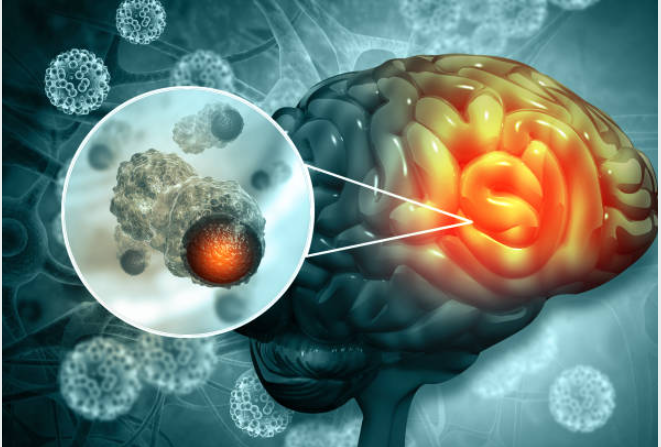Brain Tumors Unveiled: A Roadmap from Diagnosis to Hopeful Horizons
Good morning my great people of hive community, I hope we all are doing well. I am here this morning to share a knowledge on Brain Tumor. One of my neighbor died two days ago because of this deadly disease and I was forced as a health attendant to make a research and ask some doctor's the cause of this brain tumor. I will urge everyone to please read to the end so as to learn and keep our health safe.
A brain tumor is a complex and potentially life-altering condition that occurs when abnormal cells multiply within the brain. These tumors can arise from various types of brain cells and can be either benign (non-cancerous) or malignant (cancerous). Understanding the causes, symptoms, and treatment options for brain tumors is crucial for patients and their families facing this challenging diagnosis.
Causes of Brain Tumors:
The exact cause of most brain tumors remains unclear. However, several risk factors have been identified. Genetics play a role, as individuals with a family history of brain tumors may be at a higher risk. Exposure to certain environmental factors, such as ionizing radiation, may also contribute to the development of brain tumors.
Types of Brain Tumors:
Brain tumors are classified based on their origin, behavior, and location within the brain. Primary brain tumors originate within the brain tissue, while secondary tumors, or metastatic tumors, spread to the brain from other parts of the body.
Gliomas are the most common type of primary brain tumor and originate from glial cells, which provide support and protection to neurons. Gliomas include glioblastomas, which are highly malignant and aggressive tumors.
Meningiomas, arising from the meninges—the layers covering the brain and spinal cord—are typically benign but can cause symptoms due to their location and size.
Symptoms of Brain Tumors:
The symptoms of a brain tumor can vary depending on its type, size, and location. Common symptoms include persistent headaches, seizures, changes in vision or hearing, difficulty with balance and coordination, cognitive changes, and personality or mood changes.
The severity and combination of symptoms can help healthcare professionals determine the type of brain tumor and develop an appropriate treatment plan.
Diagnosis:
Diagnosing a brain tumor involves a combination of medical history reviews, neurological exams, and imaging studies. Magnetic Resonance Imaging (MRI) and Computed Tomography (CT) scans are commonly used to visualize the brain and identify abnormalities. In some cases, a biopsy may be necessary to confirm the tumor type and guide treatment decisions.
Treatment Options:
The treatment approach for brain tumors depends on factors such as the tumor type, size, location, and overall health of the patient. Common treatment options include surgery, radiation therapy, and chemotherapy.
Surgery involves the removal of as much of the tumor as possible while minimizing damage to surrounding healthy tissue. In some cases, complete removal may not be feasible due to the tumor's location.
Radiation therapy uses high-energy rays to target and destroy cancer cells. This may be employed after surgery to eliminate remaining tumor cells or as the primary treatment for tumors that are challenging to surgically remove.
Chemotherapy involves the use of drugs to kill or slow the growth of cancer cells. It can be administered orally or intravenously and is often used in combination with other treatments.
Innovations in Treatment:
Advancements in medical research and technology have led to promising innovations in brain tumor treatment. Targeted therapies aim to disrupt specific molecules involved in tumor growth, minimizing damage to healthy cells. Immunotherapy harnesses the body's immune system to recognize and attack cancer cells. Clinical trials provide opportunities for patients to access cutting-edge treatments and contribute to the development of new therapies.
Challenges and Coping:
Facing a brain tumor diagnosis poses numerous challenges for patients and their loved ones. Physical and emotional well-being may be affected, requiring a multidisciplinary approach that includes medical, psychological, and social support.
Supportive care, including pain management, rehabilitation, and counseling, plays a crucial role in enhancing the quality of life for individuals with brain tumors. Support groups and community resources can provide valuable connections and shared experiences.
Conclusion:
Brain tumors are complex and diverse, requiring a personalized approach to diagnosis and treatment. Advances in medical science offer hope for improved outcomes, but the journey for patients and their families remains challenging. A comprehensive understanding of the causes, symptoms, and treatment options empowers individuals to make informed decisions and navigate the complexities of living with a brain tumor. Ongoing research and increased awareness are essential to continue improving outcomes and providing better quality of life for those affected by brain tumors.
Thanks for stopping by to read my article, I believe you find it so interesting.....I love you all.

